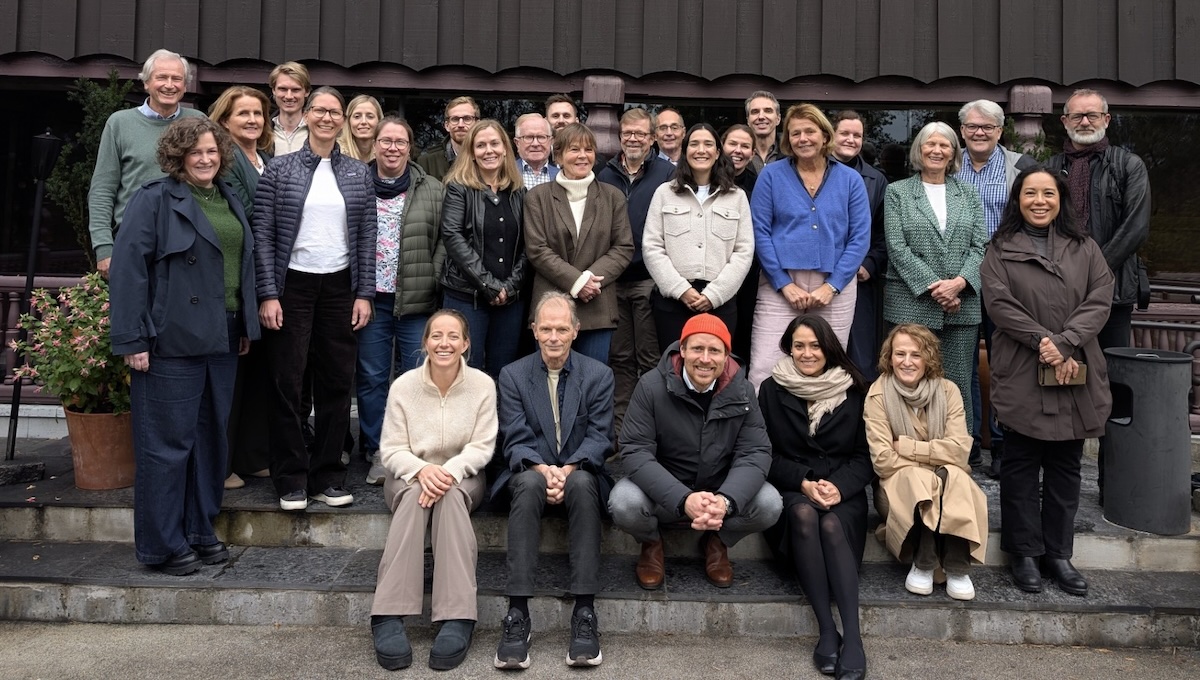Bygdøystuene, Oslo, 9 October 2025 11th Epilepsy Research Group (ERGO) seminar
The eleventh epilepsy research group seminar for ERGO took place at Bygdøystuene on October 9th. Thirty-two participants attended the meeting.
The main topics discussed at the meeting were:
- Artificial intelligence (AI) in science and in scientific publications. Postdoc Esten Høyland Leonardsen from the Department of Psychology, Research Group for Cognitive psychology, Neuroscience and Neuropsychology, University of Oslo gave an introduction to the use of AI in science. This was followed by a talk from Chief Editor Are Brean, Tidsskrift for Den Norske Legeforening on the challenges with AI in medical scientific publications. Finally, PhD student Mats Tveter, AI Mind project/Department of Neurology at UiO and OUS presented his project on the use of AI in advanced EEG interpretation.
- Zebrafish and epilepsy. First, professor Camila Esguerra from the Norwegian Centre for Molecular Biosciences and Medicine (NCMBM) discussed zebrafish as a model for anti-epileptic drug repurposing. Second, dr. Ahmed Jamali from the Yaksi Group at the Kavli Institute in Trondheim talked about glia-neuron interactions studied in zebrafish. Postdoc Monika Mochol from ERGO, NCNMBM and Kalnes gave an update on her ongoing project.
- Translational research in ERGO. A general overview was given by group leader Kjell Heuser while PhD students Jon Andreas Næsgaard and Cecilie Nome presented their projects.
- Digital home follow-up, a project started this year in Department of Neurology, OUS was discussed with presentation of first results by MD Christian Eckmann, ERGO, Department of Neurology, OUS.

Program
08.30 – 09.00 Ankomst, kaffe og frukt
09.00 – 09.15 Åpning. Hva har skjedd siden siste seminar?
09.15 – 10.45 Fra translasjonsforskningen
09.15 – 09.30 Prosjektoppdatering: Ny astrocyttbasert epilepsimodell. Jon Andreas Næsgaard
09.30 – 09.40 Diskusjon
09.40 – 09.55 Prosjektoppdatering: Astrocytt-manipulasjon og mulige effekter på kramper.
Cecilie Nome
09.55 – 10.05 Diskusjon
10.05 – 10.20 Translasjonsforskningen i ERGO inn i fremtiden. Kjell Heuser
10.20 – 10.30 Diskusjon
10.30 – 10.50 Kaffe
10.50 – 12.35 Kunstig intelligens og medisinsk forskning – relevant for ERGO?
10.50 – 11.20 En introduksjon til KI og dets rolle i medisinsk forskning. Esten Høyland Leonardsen, Psykologisk institutt, UiO
11.20 – 11.30 Diskusjon
11.30 – 12.00 Utfordringer med KI i medisinsk publisering. Are Brean, Sjefsredaktør Tidsskrift for DNLF
12.00 – 12.10 Diskusjon
12.10 – 12.30 Prosjektpresentasjon av phd prosjekt: KI til bruk for avansert EEG tolkning. Mats Tveter, UiO.
12.30 – 12.35 Diskusjon
12. 35 – 13.45 Lunch (mulighet for kort sightseeing på Bygdøy folkemuseum)
13.45 – 14.30 Prosjektgjennomgang før disputas 27.11.25. Recent trends in status epilepticus – with a special focus on diagnosis and prediction of outcome. Line Bédos Ulvin
14.30 – 14.50 Kaffe
14.50 – 15.20 Kliniske prosjekter
14.50 – 15.15 Digital hjemmeoppfølging – hvordan måle effekt av dette? Christian Eckmann
15.15 – 15.20 Benstrekk
15.20 – 16.40 Zebrafisk og epilepsi
15.20 – 15.40 Zebrafish as a model for anti-epileptic drug repurposing. Camila Esguerra, Norwegian Centre for Molecular Biosciences and Medicine (NCMBM)
15.40 – 15.45 Questions
15.45 – 16.05 Glia-neuron interactions in hyperexcitable networks studied in zebrafish. Ahmed Jamali, NTNU/OUS
16.05 – 16.10 Questions
16.10 – 16.25 Oppdatering: Siste nytt fra Zebrafisk-studiene i Oslo. Monika Mochol
16.25 – 16.35 Felles diskusjon
16.35 – 16.40 Avslutning
